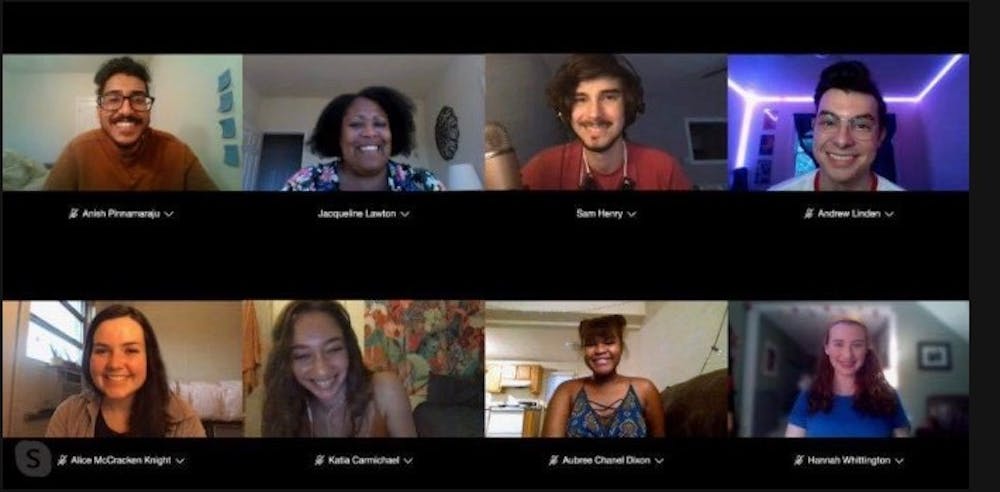The entertainment industry looks very different during a pandemic, but the Kenan Theatre Company is taking it in stride with a virtual script reading of José Rivera's “Marisol” on Sept. 4 and 5.
The two-act play, directed by Jacqueline E. Lawton, an assistant professor in the Department of Dramatic Art, will be the first in a series of virtual script readings by KTC’s cast and crew. The show will be broadcasted via Skype.
It features the experiences of 26-year-old Marisol Perez, played by UNC student Katia Carmichael, in a New York cityscape. The show starts out in a typical metropolitan world, but things take a turn for the worse when Marisol’s guardian angel, played by UNC student Aubree Dixon, is called into a heavenly battle against a God that has given up.
What Lawton calls a “spiritual apocalypse” occurs when the war encroaches on New York City and reduces it to a dystopian wasteland. The juxtaposition of 'normal' versus disorder in “Marisol” sheds light on the current situation in the U.S.
"Marisol is way more relevant than we even imagined when we first decided to choose it,” Lawton said. “The plague of the '90s was HIV/AIDS and now we’re looking at the coronavirus being the plague.”
She said she believes today’s pandemic culture will be what makes “Marisol” relatable to its audience. The cast is putting a contemporary spin on the show, as it is being broadcasted from their individual homes.
The country is also in the midst of what Lawton calls an “ongoing racial reckoning,” with protests gaining both attention and intensity by the day. Lawton points out that theater is no stranger to racial disparities, and she says the show also brings attention to U.S. problems of homelessness, joblessness and a tanking economy.
“I hope that on the other side of what I’m calling ‘the great pause,’ that our theaters start to look more like the people in the communities in which they are built,” Lawton said. “I hope they are more diverse, more equitable and that we’re hearing more stories...and not hearing from one singular voice like we have been for so long.”
“Marisol,” penned by a Puerto Rican playwright, highlights this issue of racial inequality within the entertainment industry by having a lead meant for a person of color. Carmichael is excited to take part in a performance with a Latina lead, as that is not often an option for her as an actress.



